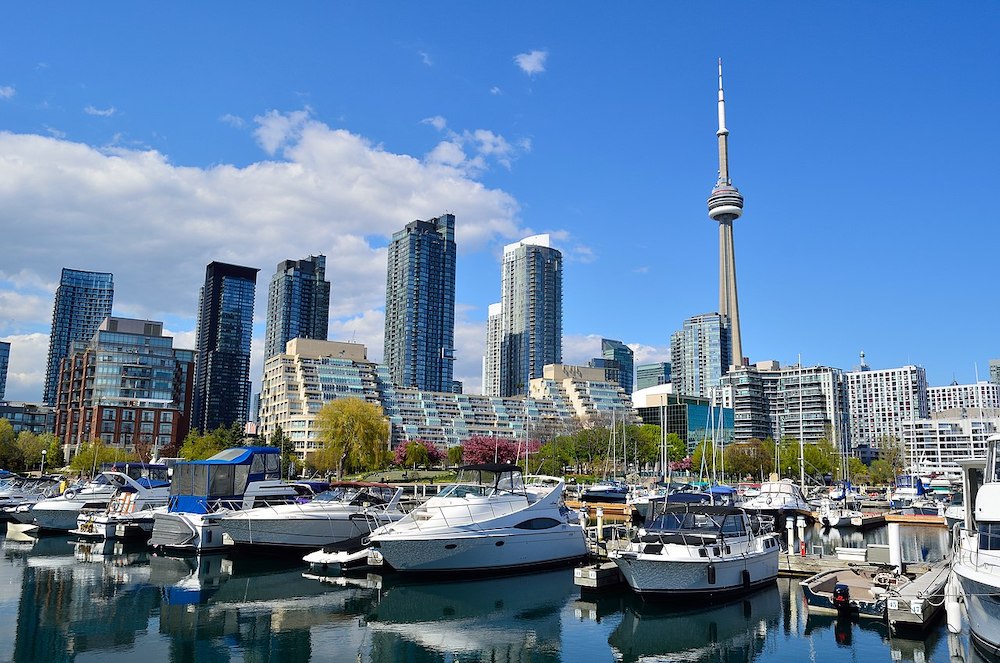(Editor’s note: Veronica Rhodes at TFX is the author for this post on the Top 5 tax-friendly countries for Americans.)
After facing plenty of tough challenges in 2020, packing up your belongings and relocating to one of the good countries for expats may not seem that far-fetched. According to the State Department, there are already more than nine million American expats living in foreign countries, and this number is rising, especially given the new opportunities and flexibility many of us have been granted and become acclimated to in terms of working and learning remotely.
Future retirees from the United States who wish to make the most of their golden years are also considering spending the rest of their days in the best places to live abroad — areas where the quality of life is high, the crime rates are low, the cost of living is reasonable and health care is sufficient.
Best Places for Americans to Live Abroad
If you’re looking for the best places for Americans to live abroad, you have come to the right place. Take a look at this short list of the best places for American expats to live.
In making this compilation of the best countries for expats, we prioritized:
• safety
• economic and political stability
• quality of life
• and access to culture and the great outdoors
So read on and enjoy reading about the best places abroad!

Switzerland
Switzerland is a small country in Central Europe that is one of the best foreign countries for American expats. Officially known as the Swiss Confederation, it has 16,000 square miles of glacier-carved Alps, lakes and valleys. It is one of the world’s wealthiest countries, and its neutrality has been well-known for ages.
According to the CIA World Factbook, Switzerland has low unemployment, a talented workforce and one of the greatest gross domestic products per capita in the world. Modest corporate tax rates, a well-developed service sector driven by financial services and high-tech manufacturing industry all contribute to the country’s thriving economy.
And, when it comes to its reputation as a tax haven, the rumors aren’t far off the mark. Individual income tax rates can reach 40 percent, and the country also has indirect taxes of 7.7 percent and a six percent employee social security tax. Tax collection in Switzerland, on the other hand, is only 10.17 percent of GDP.

Canada
As President Biden recently told Prime Minister Trudeau, Canada is the closest ally of the United States. Regardless of who is in government, Canada remains one of the best countries to expatriate from the U.S. for a variety of reasons, including low-cost education, cultural diversity, stability and endless outdoor experiences in the untouched wilderness.
If you’re looking for work, consider Toronto, Canada’s largest city, which is often likened to New York City and is home to the majority of the country’s job prospects. There are many other livable towns to pick from, such as Vancouver, which is bordered by water and mountains and offers weekend getaways to Tofino, which is a year-round surfing hamlet. There’s also Calgary, which is undergoing a rebirth because of its fashionable districts, cool eateries and access to some of the best trails in the Canadian Rockies.
For those who seek a taste of European life without the long flights, there are the French-infused cities of Montreal and Quebec City in the east. You can choose from a variety of options depending on your situation. You can start by determining your status if one of your parents or grandparents was born there.
The major determinant of Canadian income tax liability is an individual’s residence status. An individual resident in Canada is taxable on worldwide income. Non-residents are taxed on Canadian-source income only. The Canadian tax system is a self-assessment system. Individuals are required to determine their own liability for income taxes and file the required returns for any taxation year in which taxes are payable. Individuals file their own tax returns;
spouses do not file jointly.

Costa Rica
Costa Rica, which is located in the heart of Central America, is one of the most politically and economically stable countries in the region, making it one of the best expat destinations in the world. In terms of human development, the country outperforms its regional rivals, and its jungles, woods and coasts have earned it an international reputation for ecotourism.
This idyllic Central American country, nestled between the Pacific and Caribbean coasts, entices visitors with volcanoes, cloud forests and unique fauna such as sloths, capuchin monkeys and toucans. More than that, this tranquil Spanish-speaking treasure is summed up by the Pura Vida — which means Pure Life — the credo of good living. To sweeten the deal, the country provides expats with a simple residency program, low-cost dental and healthcare, a stable democracy and direct flights to the United States from two international airports.
Expats can go to either coast for vast lengths of unspoilt beaches, seaside villages, surfing and yoga lessons, amicable expat communities and commercial initiatives often related to eco-tourism, while the capital of San Jose boasts a significant cuisine and arts scene. This could be the place for you if you value a healthy, laid-back lifestyle surrounded by natural beauty with an evergreen cool factor that is difficult to replicate elsewhere.
When it comes to taxes in Costa Rica for expats, an individual will be a Costa Rica resident for tax purposes if they live in Costa Rica for more than six consecutive months during the tax year. For people who are employed, a shorter term of residence may apply. Costa Rica calculates tax differently for different types of income. Income subject to tax in this country includes employment income, self-employment, business income, investment income, directors’ fees and capital gains. In Costa Rica, income tax rates are progressive. The maximum tax rate of 15 percent for employment income and 25 percent for self-employment and business income.

Singapore
Singapore, a busy metropolitan in Southeast Asia and home to one of the world’s busiest ports, was founded as a British commercial colony in the 19th century. The majority of the city state’s 5.7 million residents live on the namesake capital island, which is surrounded by dozens of other islands.
Singapore is one of Asia’s four economic “tigers” and has experienced significant growth in recent years, thanks to sophisticated manufacturing and production processes that have allowed for free-market innovation in the burgeoning electronics and pharmaceutical industries. Singapore has a high GDP per capita and low unemployment, making it one of the world’s wealthiest countries.
Singapore is frequently ranked as one of the finest nations for expatriates to live and work in, owing to employment security, high-quality schools and one of the world’s most efficient public transportation systems, which can whisk you around the city in a flash. Without a question, this is a thrilling place to live and work. Add to that an astounding food scene, owing to its mix of cultures, which includes everything from street markets to food outlets to Michelin-starred restaurants, as well as extraordinary shopping centers, new sustainable skyscrapers and endless walks through the region’s best botanical gardens. To put it another way, there’s plenty to keep you occupied.
Singapore has low individual income tax rates. Similar to most other systems, residents are taxed on a progressive system. A U.S. expat is considered resident for tax purposes if he or she lived or worked in Singapore for at least 183 days. As a non-resident, your tax will be calculated at 15 percent of your employment rate, or at a progressive rate, whichever is greater. All other non- employment income is taxed at 20 percent. Singapore does not impose tax on capital gain or inheritances. However, they do impose a 3 percent Goods and Services Tax (GST) on all domestic consumption purchases.

New Zealand
New Zealand’s political stability and spectacular sheep-strewn vistas where the Tasman Sea meets the Pacific Ocean will entice Americans wishing to de-stress and take care of their mental well-being and work-life balance. The world’s adventure capital’s vast array of activities should be enough to entice visitors, but those seeking tranquility will find lots of it while sampling local produce and wine.
Auckland is the country’s modern commercial and cultural center, but future residents may want to explore Wellington or adrenaline-filled Queenstown as well. The North and South Islands are only a three-hour boat journey away, allowing residents freedom to discover the remarkable range of mountains, glaciers, hot springs, lakes, beaches and ski slopes. Your New Zealand salary will be wisely spent on living a high life.
New Zealand residents are taxed on their worldwide income. Tax rates range from 10.5 percent to 33 percent. Other than income and business taxes, there are relatively few taxes in New Zealand – no local or state taxes, no inheritance tax and only capital gains taxes on some asset disposals.
How do I file my expat taxes?
As a U.S. citizen living abroad, you still will have to file your tax return. Since you’ve got so many things to take care of, the easiest way is to trust professionals on this one. At TFX, a team of expat tax advisors will be happy to take care of your tax return.
About TFX
TFX has been preparing U.S. tax returns for more than 25 years. In the early 2000s, TFX evolved into an online-only service and focusing on the expat market. TFX is 100-percent dedicated to clients living abroad, providing best-in-class tax advice, planning and compliance services for individuals, partnerships, corporations, trusts and estates – subject to the U.S. tax system – wherever they may live or operate in the world.
At TFX we have been preparing taxes for U.S. expats for over 25 years and have clients in 175 countries.
Simple, affordable, smart. We offer the same level of service online that you would receive by visiting our office - without having to leave your home. We make customer service our highest priority - and are always ready to answer your questions.
Living abroad presents enough challenges - filing your U.S. taxes shouldn't be one of them.














